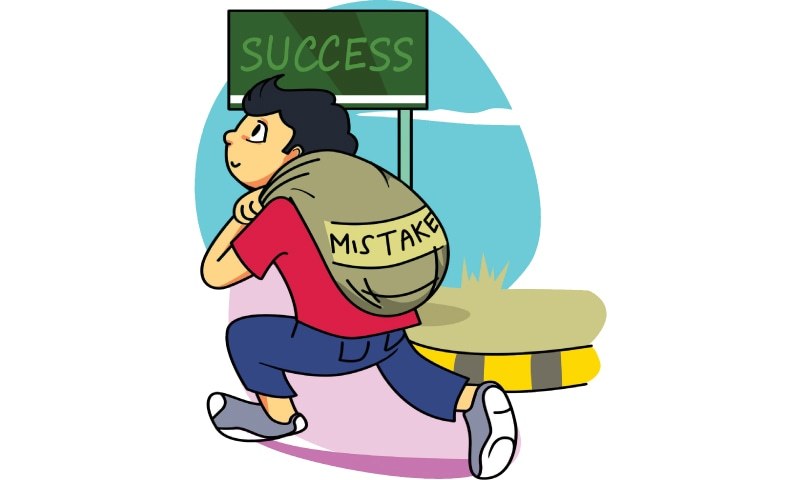
To my knowledge there have been only two men born on this earth who never admitted making a mistake. One was raised in the town of Nazareth, while the other was born and reared in Westmeath and happened to be my father. But making a mistake is not a bad thing when we learn from the experience and persevere with what we set out to do. “Sticking to it is genius – I’ve failed my way to success”, said the great inventor Thomas Edison.
One of life’s great pleasures is to make a mistake which turns out to be a better way or to benefit more from the error. I once attended Galway Races with my then boss and his father-in-law. We got the customary hot tip from the guy-in-the-know-who-didn’t and all three of us rushed in to get our bet on number eleven, but John, a wee bit deaf, backed number seven, which won in a canter and paid 50/1 on the tote!
We all hate the idea of screwing up and embarrassing ourselves in front of everybody, but unless you somehow manage not to do anything ever again, you will mess up, somewhere, sometime, somehow. I am all for mistakes, because if you make enough of them you will hit on ones that turn out better than what you were looking for. I think it is called serendipity when you get it right by making mistakes.
Christopher Columbus is the prime example when he set out for Asia and found America. In a previous column we wrote about Alexander Fleming who saved countless lives when he discovered penicillin by accident.
An English pharmacist named John Walker tried to clean a wooden stick he had been using to mix chemicals in 1826. He scraped the stick on a stone and jumped with surprise when it burst into flames and the friction match was invented.
A hundred years ago Tea-bags were invented by accident when a New York tea merchant sent out small sachets of tea samples to his customers. A simple mistake you might say, as was also the invention of bubble-gum (personally I regret that “mistake.”) by Walter Diener, an accountant with a chewing-gum company; or what about Edouard Benedictus, a French chemist, who dropped a glass container on the floor: He stooped to pick up the pieces of glass but found but found the pieces stuck together as the glass contained liquid plastic and that is how safety glass was invented.
Innkeeper, Ruth Wakefield was baking buns one day in the 1930’s using an old recipe. She cut up a chocolate bar and dropped the chunks into the batter, expecting them to melt. Instead what she got were chocolate cookies and Ruth’s mistake became the most famous cookies of all time.
Coco Cola was the result of another delicious accident: In 1886 a pharmacist named John Pemberton cooked up medicinal syrup in a large brass kettle slung over an open fire, stirring it with an oar. He figured he had created a fine health tonic for people who were tired, nervous, or even suffering from sore gums. John’s concoction didn’t make it as a medicine and it took it a long time to catch on as a beverage. He spent $74 on advertising in his first year, but only sold $50 worth of coke.
Today John’s mistake sells a billion drinks a day – some strike for us blunderers!
Rubber got its name when Joseph Priestly discovered that a wad of it was good for “rubbing out” pencil mistakes on paper. Rubber had a variety of uses but the problem was that it was too soft (bit like myself!) melted if it got hot and broke up when it got too cold. It wasn’t until Charles Goodyear accidently dropped a blob of rubber and sulphur on a hot stove that rubber as we know it today came into being – all because a man was clumsy!
So, don’t be afraid of making that mistake: It is not true that “the less you do the less mistakes you make” because doing little is the real mistake. Doers make the most mistakes but they also achieve the most. Louise Pasteur said; “Where observation is concerned, chance favours the prepared mind”, or in the words of James Joyce; “Mistakes are the portals for discovery.” We learn from every mistake and it is up to each of us as to what we do with that mistake.
Some of the world’s greatest discoveries, like this column for example, have come about by accident. Janey Mac, I wonder does anyone in the newsroom refer to me as an editor’s mistake…??
Don’t Forget.
A man must be big enough to admit his mistakes, smart enough to profit from them and strong enough to correct them.





